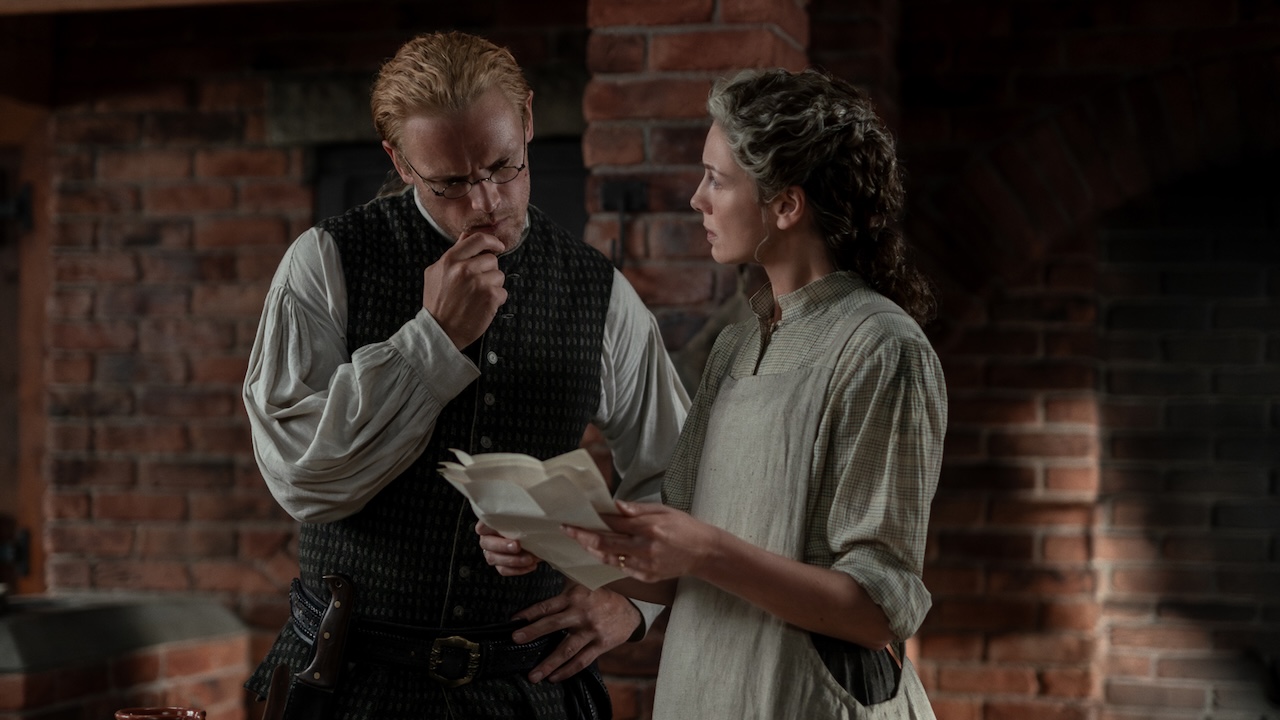The Running Man Massively Changes The Ending Of Stephen King's Story, And WTF Was That?
A decent movie has one of the worst endings in recent memory.
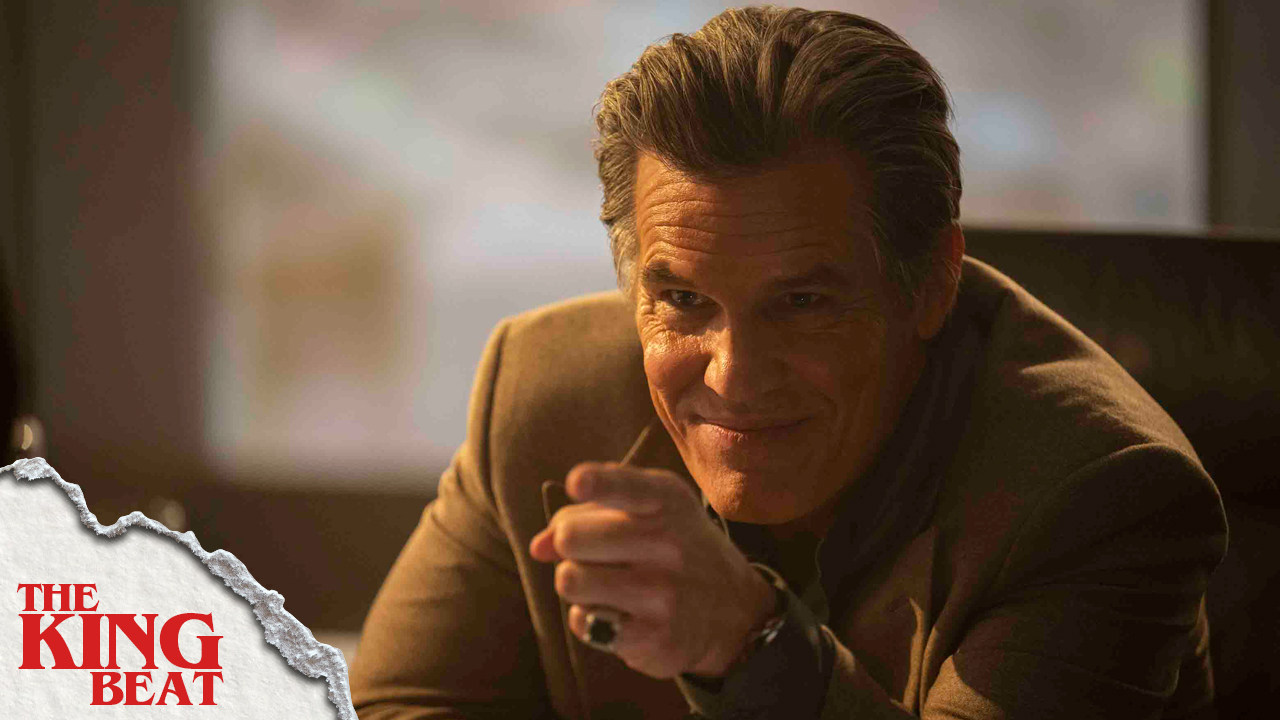
Your Daily Blend of Entertainment News
You are now subscribed
Your newsletter sign-up was successful
SPOILER WARNING: The following article contains massive spoilers for Edgar Wright’s The Running Man. If you have not yet seen the film, proceed at your own risk!
When it came to Edgar Wright’s decision to make a new adaptation of Stephen King’s The Running Man, faithfulness to the source material was the point. Earlier this year, during a luncheon Q&A at CinemaCon, the writer/director explained that he was a big fan of the book from when he was young, and he was never satisfied with the extremely loose take that was released in 1987, starring Arnold Schwarzenegger (which I’ve previously dubbed “the least-Stephen King Stephen King movie"). He wanted to make a film that better represented King’s original story.
The good news? His new movie is indeed mostly that: practically the entire narrative makes it from the page to the screen, including even the protagonist’s run through the haunted town of Derry, Maine. The bad news? The big exception (and what necessitates that “mostly”) is the ending, which the film manages to botch in a massive way.
Back in early 2021, when The Running Man remake was first announced, I wrote about how it would likely be the case that the 2025 adaptation’s ending would deviate from the book, and Edgar Wright confirmed that would be the case in an interview published last month. But if you were like me and hoped/expected smart alterations that would at least capture the tone and energy of the conclusion, all that one can really feel is disappointment. In this week’s special edition of The King Beat (slightly delayed due to its spoiler-y nature), I’ll dig into all of it. Why it’s so bad is a bit complicated, so let’s first recap what plays out in Stephen King’s novel and at the end of the film – which actually stay in concert for quite a long time into the third act of the narrative.
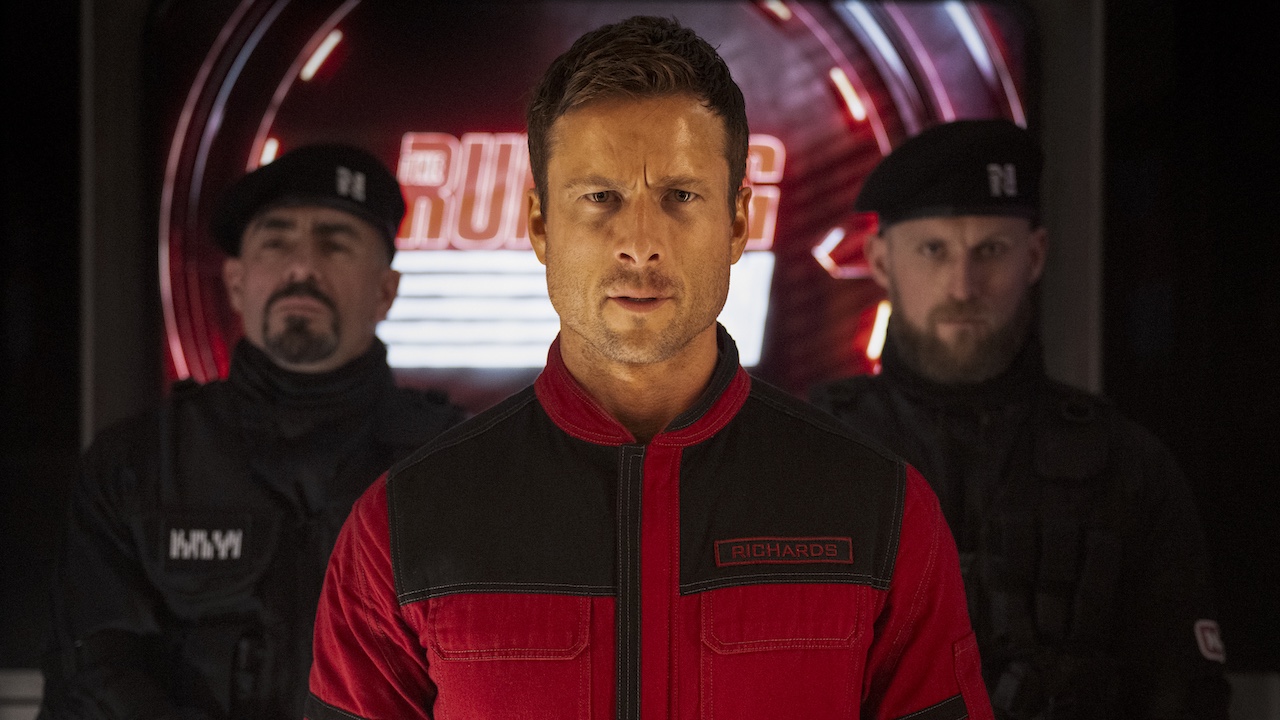
What Happens At The End Of Stephen King’s The Running Man, And How It Compares To The Adaptation
There is a very simple explanation as to why it was always unlikely that we would see Stephen King’s ending of The Running Man brought to the big screen: while the novel was first published in 1982, the explosive finale includes imagery that evokes memories of September 11, 2001, and that wound is still a bit too fresh.
That being said, the movie adaptation’s third act very much represents the majority of what plays out in the book. Having become one of the biggest sensations in the history of The Running Man game show, Ben Richards orchestrates a hostage situation with a woman whose car he hijacks, and his threats get him a private plane with only a flight crew and lead Hunter Evan McCone on board. When they are airborne, Richards gets a call from Dan Killian, who tells him that they know his claim to have explosives on hand is a bluff, but he wants to negotiate a different kind of ending to the show.
Hoping to seize on Richards’ popularity, Killian offers him the chance to replace McCone as the lead Hunter – and he motivates his would-be star to say yes by revealing that his wife and child have both been dead for days. Emotionally destroyed by the news, Richard opts to kill McCone and the flight crew, and he lets his hostage exit the plane via parachute.
Your Daily Blend of Entertainment News
In the book, once everyone else on the flight is dead or gone, Richards takes control of the plane, and he proceeds to navigate it straight into the skyscraper that serves as Network headquarters and kills Dan Killian. That idea off the table, the 2025 movie adaptation goes in a different direction.
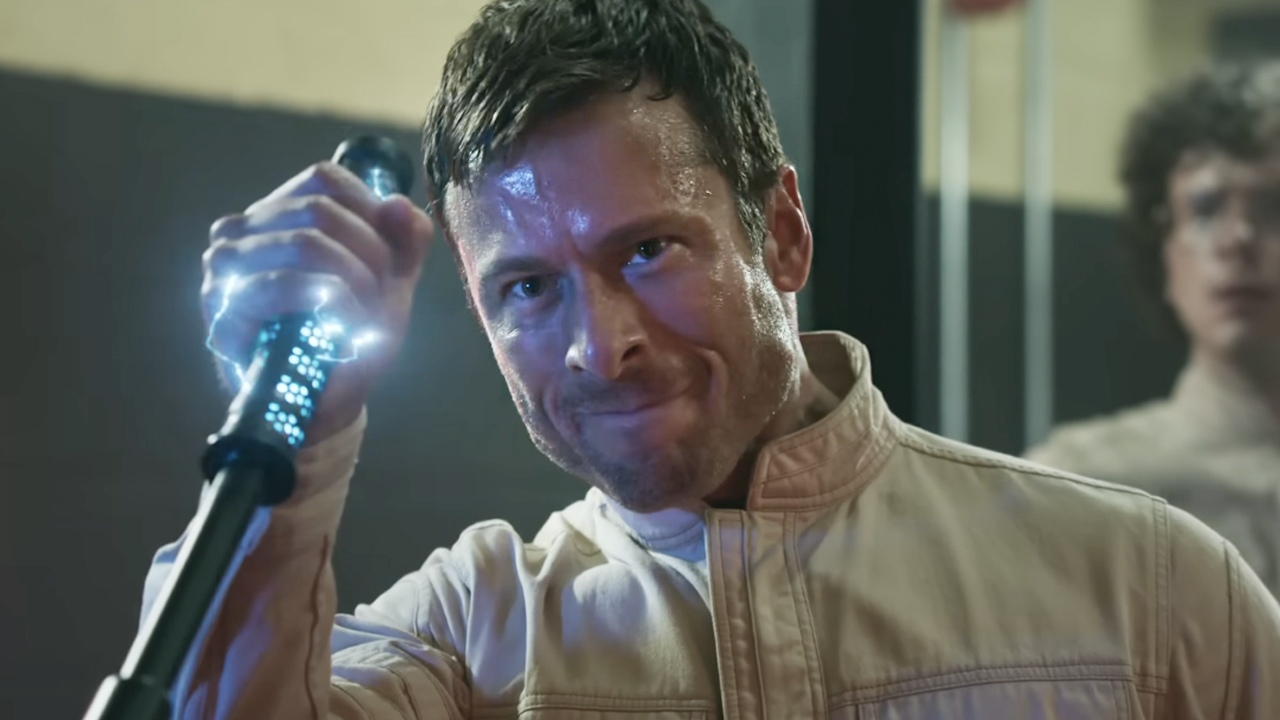
How Edgar Wright’s The Running Man Changes Stephen King’s Ending
In the film scripted by Edgar Wright and Michael Bacall, Ben Richards (Glen Powell) doesn’t purposefully steer the plane towards the Network skyscraper; instead, the Network is able to take over the auto pilot function and uses it to create a narrative: host Bobby T (Colman Domingo) tells audiences that Richards is aiming to execute a terrorist attack, indiscriminately killing everybody inside, and that action is used as an excuse to shoot the plane down before innocent lives are lost.
When a missile hits, Richards is presumably killed (which would match the book minus the deadly vengeance)… but the movie freeze-frames and becomes a video presented by the revolutionary known as The Apostle (Daniel Ezra). The underground host explains to the audience not only the theory that the protagonist managed to survive by ejecting the crew’s escape pod, but he also suggests that Sheila Richards (Jayme Lawson) and her daughter are still alive as well. It turns out that both things are true, as the next scene presents a family reunion outside of a grocery store, with Ben revealing his survival by stealthily purchasing a new pair of red socks for his girl and having the clerk deliver them.
Not only does Richards get back those whom he loves and thought were lost, but he also becomes a revolutionary leader. When the new season of The Running Man launches, Bobby T quits when he recognizes violence in the crowd, and when Dan Killian (Josh Brolin) tries to host the episode himself, a riot ensues. Molotov cocktails are thrown to burn the studio down, and Richards steps through the flames and unmasks himself before shooting and killing Dan with the “Fate” gun previously owned by Evan McCone (Lee Pace).
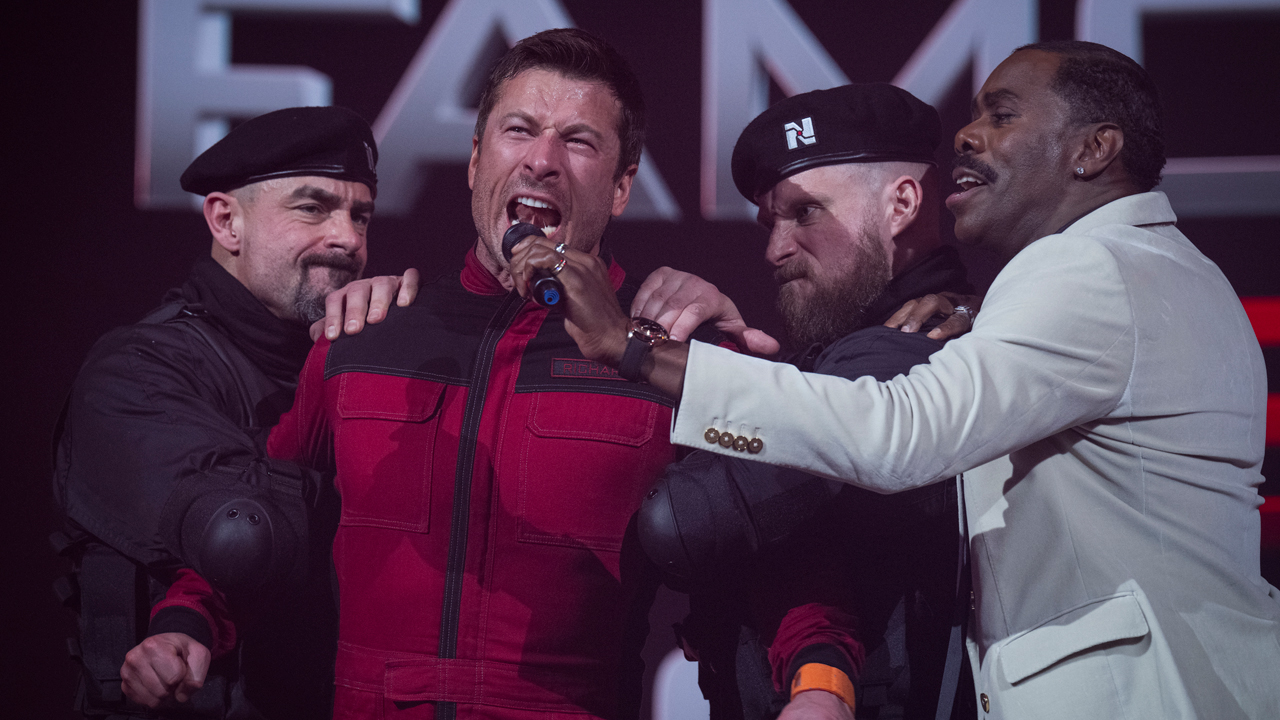
The Running Man Movie Trades Dark Vengeance For A Hollywood Ending, And It Totally Sucks
There are two main reasons why I hate the ending of Edgar Wright’s The Running Man, and neither concerns the simple fact that what plays out is different than the book. As stated, I understand why the filmmakers felt like it was too controversial. My issues instead extend from the fact that A) it’s a creative cop out that betrays the overall tone of the source material’s conclusion, and B) it doesn’t make any sense.
Regarding the former, the ending particularly stings after seeing Francis Lawrence’s The Long Walk a couple of months ago – an adaptation of another Stephen King book that was also first published with King’s pseudonym Richard Bachman. For decades, that novel’s darkness earned it the reputation of being unadaptable… and screenwriter J.T. Mollner crafted an ending that was even darker than what the author came up with (it’s so dark that I actually felt it went too far as I was watching it, though I came around to loving it after letting it stew in my brain). Meanwhile, the word that comes to mind when I think of the Running Man ending is “nerfed.”
On top of being a betrayal of the source material, adding insult to injury is that there are major logic problems. In saying that, I’m not referring to Richards’ survival – which is super lame but at least semi-plausible; the story has a much more significant impact with his martyrdom, but his becoming a revolutionary leader is… fine. When discussing logic problems, I’m talking about his wife and child being alive.
The extreme ruthlessness of the Network’s operations are on full display throughout the movie (which is to say that they don’t seem very choosy when it comes to having people killed), and Sheila and her daughter being alive represents a liability given that footage of their execution was featured on the show and broadcast to millions of viewers. Anyone aware of their survival would know that the Network is lying and question more of the “truths” that they’ve been sold – and the grocery store scene suggests that Sheila isn’t exactly living her life in the shadows/on the run. The Network has every reason to kill them and zero to let them live, but that fact is ignored in favor of an ending that is the most overt example of Hollywood bubblegum that I’ve seen in what feels like a long time.
This is perhaps recency bias talking, but I feel as though I haven’t been this let down by a movie all year – and I say that having mostly liked The Running Man and giving it a positive review. Stephen King movies, including Stand By Me, The Shining, The Shawshank Redemption and The Mist, have delivered some of the greatest endings in cinema history, but at present I’m leaning towards thinking that this one stands among the worst.
That brings an end to this week’s spoiler-filled (and admittedly disappointment-driven) edition of The King Beat, but in seven days, be sure to come back here to CinemaBlend for a fresh column examining the biggest happenings in the world of Stephen King. And if you’re curious what’s still on the way now that all six 2025 King adaptations have premiered, head on over to our Upcoming Stephen King Movies and TV guide to learn about all of the dozens of projects that have been announced/are in development.

Eric Eisenberg is the Assistant Managing Editor at CinemaBlend. After graduating Boston University and earning a bachelor’s degree in journalism, he took a part-time job as a staff writer for CinemaBlend, and after six months was offered the opportunity to move to Los Angeles and take on a newly created West Coast Editor position. Over a decade later, he's continuing to advance his interests and expertise. In addition to conducting filmmaker interviews and contributing to the news and feature content of the site, Eric also oversees the Movie Reviews section, writes the the weekend box office report (published Sundays), and is the site's resident Stephen King expert. He has two King-related columns.
You must confirm your public display name before commenting
Please logout and then login again, you will then be prompted to enter your display name.
